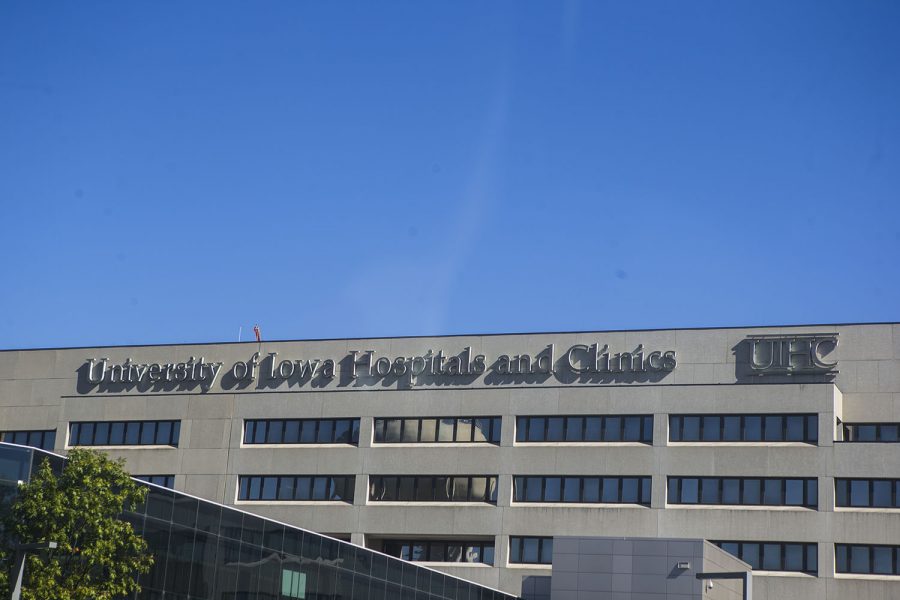UIHC receives $1.5 million to train providers to treat opioid addiction
UIHC received a $1.5 million grant to train providers on how to treat opioid addicts with medication-assisted treatments.
November 15, 2018
The Substance Abuse and Mental Health Services Administration has given the University of Iowa Hospitals & Clinics a three-year, $1.5 million grant to train providers in treating patients addicted to opioids.
The UIHC team will use the funding to train providers in a variety of different specialties, such as how to use suboxone, a replacement-therapy drug that helps regulate cravings and withdrawal symptoms.
UI psychiatry Clinical Professor Alison Lynch, the director of addiction medicine at the UIHC, will lead a team of providers in the training.
“One of the things about an addiction is that it takes over someone’s life,” Lynch said. “It affects relationships. It takes a lot of time and resources. It can be totally distracting, so it is hard to do such things as study, work, or take care of responsibilities. As people get started in treatment, they can stop using opioids, they feel ‘normal’ again, and they get their lives back.”
RELATED: Student-led group confronts drug-use in Iowa City, advocates legalization of syringe services
UI psychiatry Clinical Professor Anthony Miller, one of two providers in the state certified in medication-assisted treatment in the Department of Veterans Affairs, will work with Lynch to provide the training.
He said geographic access to such treatment is vital to Iowans, as well as having enough providers to adequately treat patients.
“It should be available, ideally, in all levels of medical care,” Miller said. “UIHC is sort of the specialty referral center and training hospital, and anything that’s a medical treatment ought to be offered here. We need to be able to do everything here.”
Medication-assisted treatment requires extensive training for providers. As specified by the Drug Enforcement Administration, physicians must undergo eight hours of training and then apply to the agency for certification.
“Opioid addiction is in our sphere of influence to be able to do something about and treat, and it should be considered part of general medical practice,” Miller said.
Lynch said the grant money will help to provide medication-assisted treatment at clinics and facilities throughout the state that are in need, including rural clinics and prisons. There are currently fewer than 200 physicians in Iowa who can prescribe suboxone, she noted.
“As opioid addiction has become more prevalent, and with more people dying from opioid overdose, it is important that we help make treatment more available for people who need it,” Lynch said. “With our grant, we are able to expand the [medication-assisted treatment] services we are offering at UIHC, and we are also providing training and assistance to clinicians in eastern Iowa so they can begin to offer this treatment to their patients.”
Kevin Gabbert, the opioid-initiatives director for the Iowa Department of Public Health, believes medication-assisted treatment has been a big factor in decreasing the number of opioid fatalities recently.
“The number of deaths involving opioids for the first eight months of 2017 was 137,” Gabbert said. “Comparing the same time frame for 2018, that number was 89. I truly believe it has been a collaboration of efforts.”
Lynch said it is important for college students and young adults to be aware of the dangers of opioid use, because there are many adverse effects associated with the class of drugs.
“Most people who develop a substance-use disorder or addiction started using substances in adolescence or early adulthood, so it is an important thing for students to be aware of,” Lynch said.






